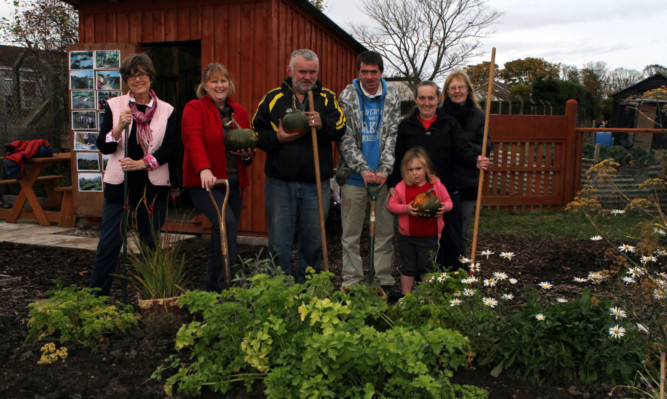Proposed changes to overhaul allotment rules is likely to have a positive economic impact locally, according to Tayside Biodiversity Partnership.
Rural Affairs Secretary Richard Lochhead recently launched a consultation to consider the shape of future allotment legislation as part of the proposed Community Empowerment and Renewal Bill (CERB).
The consultation will consider what changes should be made to the existing legislation to make it simpler for people to gain access to a plot and grow their own food.
A spokesman for Tayside Biodiversity Partnership said: “There is potential for greater local food and slow food-style projects with a positive consequent economic impact on the local community, not just in selling or swapping produce, but also giving an opportunity for local entrepreneurs to use local produce in making and selling jams, chutneys, honey, ready-meals and desserts, tisanes, soups, fruit juices, cider, perry, skin-care products, etc.
“There is also likely to be a positive health impact on the local community, not just in greater numbers of all ages undertaking allotment plots, but also in the provision of good quality, locally-grown food, herbs and fruit.
“Hand in hand with the increased demand for allotments and community growing comes the need to demonstrate how to cook locally-produced food and to engender an interest in school children, young families and the elderly, not just in producing the food, but also cooking it for themselves, using surplus produce in local care homes, schools, local businesses, and potentially selling produce to local catering businesses to contribute towards the local economy.”
The Tayside organisation also gave its views to MSPs on placing a duty on councils to provide a specific number of allotments in their area per head of population.
The spokesman added: “This may be fair to ensure that as many people who want to have an allotment can do so.
“Perhaps the wider community use of established greenspace should be considered at the same time so that not just allotments are made available to local people, but also community gardens and community orchards are considered too.
“This would widen the opportunities for local people who may not want an allotment, but are willing to work with others in producing and sharing local, good quality, produce.
“For instance, building-top community beehives, vegetables on roundabouts and road verges (like at Stirling), community input into greenspace management around hospitals, care homes, schools and colleges.”
Tayside Biodiversity Partnership has responded to the consultation along with 84 others which will help inform the development of a draft Bill.
An analysis report on the content of the responses will be published later this year.
